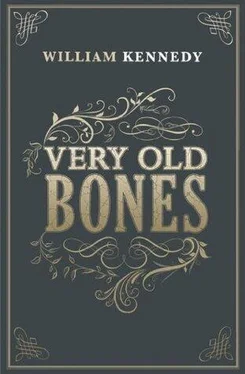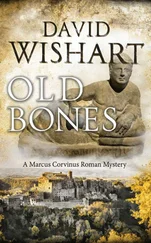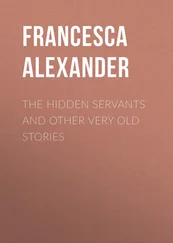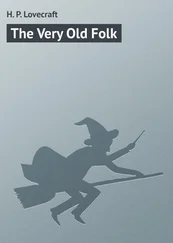I had not groomed myself so well since I’d arrived in New York as a basket case. This was a gift to Giselle: a vision of myself in meticulous sartorial health: no longer the manic, self-biting spiritual minister to the rabble; now Orson Purcell, a man in command of his moves, a surefooted, impeccable presence ready to enter, at a highly civilized level, the great American future, with his beautiful wife beside him.
It had been my plan to use the one hundred dollars my mother gave me to pay for a weekend at the Biltmore with Giselle, maybe even ask for the room where Zelda and Scott Fitzgerald had spent their honeymoon. This was a harebrained idea, but I thought the ambience of that outlandish marriage might serve as a psychic prod to our own marital adventure, which seemed as blasted from the outset as the Fitzgeralds’ most vulnerable union.
I broached the matter in the taxi back from the airport, but Giselle had scant memory of Scott or Zelda (though I had lectured her on both).
“Anyway,” Giselle said, “we already have an apartment on the West Side. Twelfth floor, three bedrooms, view of the river. A Life editor I met in Paris offered it to us. He was doing a story on Matisse the same week I was there to photograph him. You know I knew Matisse when I was little, did I ever tell you that?”
“No,” I said. “Lots of things you’ve never told me.”
“The editor’s in Japan for two months,” Giselle said. “We can have his place for the whole time, if we want it.”
Giselle’s steamer trunk had arrived ahead of us, and was already inside the apartment. I wanted only to make love to her, immediately and fiercely, but she flew into instant ecstasy at seeing the place, which was a triumph of modern decor, full of paintings, photos, books, mirrors, bizarre masks, pipes, stuffed birds, shards and estrays from around the world, the collections of a cultured traveler, Picasso on one wall, a sketch by Goya on another.
“It’s such a stroke of luck he and I were both in Paris at the same time,” Giselle said.
“You’re good friends, then,” I said.
“Well, we’re friends.”
“He’s most generous to you.”
“He’s like that.”
“Are you lovers?”
“Orson, please.”
She opened the steamer trunk and rummaged in it for a folder with several dozen photographs. She stood them on end, one by one, on the sofa and on chairs, laid them on the dining-room table for viewing.
“This is why they want me to work for Life ,” she said.
I looked through the photos Giselle had not put on exhibit and found more quality work; also two portraits of one Daniel Quinn, in uniform sitting on a pile of rubble, somewhere in Germany, and in mufti at a sidewalk café, somewhere in Paris? I then looked carefully at each of the photos Giselle had put on display, a photo of my sugar whore fellating the handless man; a photo of me biting myself; a group portrait of the rabble in the Garden of Eden; a photo of a smiling Henri Matisse in pajamas on his sofa, and on the wall above the sofa a painting of a cross-legged nude woman; industrial images — great gears and machines of unfathomable size and function in a German factory; a barge on a German river with a deckhand waving his hat and pissing toward the sky; a woman sitting in a Bierstube perhaps exposing herself to two American soldiers; two seated women in their seventies, elegantly garbed, aged beauties both, in tears.
“I can’t imagine Life running most of these pictures,” I said.
“What they like is that I seem to be present when strange things happen. Keep looking.” She stood beside me as I looked.
A farmer was plowing his field behind an ox that had been branded with a swastika.
“When Stars and Stripes printed this one,” Giselle said, “somebody went out to the farmer’s place and killed the ox.”
To my eye the photos all had quality. The woman had talent for capturing essential instants, for finding the precise moment when the light and the angle of vision allow an act or an object most fully to reveal its meaning or its essence. These pictures set themselves apart from routine photojournalism. Giselle, six months ago an amateur, was suddenly light-years ahead of so many of her peers. Obviously she had a future in photography. Her beauty would open every door of all those male bastions, and this artistic eye, perhaps developed in childhood in her mother’s art gallery, would carry her forward from there.
“This looks familiar,” I said, and I picked up a photo whose locale I recognized: the stage of the Folies Bergère. A dozen near-naked chorus girls and the beautiful Folies star, Yvonne Menard, were in seeming full-throated song, all watching, at center stage, an American-army corporal kneeling in front of a statuesque beauty in pasties and G-string, the corporal wearing a handlebar mustache for the occasion, his face only inches from the dancer’s crotch.
“It looks sillier than I imagined,” I said.
“It is quite humiliating,” Giselle said.
“How did you arrange it? They never allow photos during the show.”
“I told them I was on assignment for Life , and they let me do anything I wanted. I did get others but this is all I really was after.”
On our first trip to Paris, before we married, I took Giselle to the Folies and, because I was in uniform, an easy object of derision, I was dragooned from the audience onto the stage by the beautiful Yvonne, put in the same situation as this kneeling corporal, then pulled to my feet, drawn to the abundant bosom of the dancer who had stuck the mustache on my lip, twirled about to a few bars of music, and then abandoned as the stage went black and the dancers ran into the wings. Like a blind man, I felt with my foot for the edge of the stage (a six- or eight-foot drop if I missed my footing), found the edge, sat on it with legs dangling, and slid sideways toward the stairs that led to the audience level. I was still sliding when the lights went up and I was discovered in yet another ridiculous position. I scrambled down the stairs and back to Giselle, who was so amused by it all that she kissed me.
“You were very funny,” she had said then. “It was just as funny when I took this picture,” she said now. “The poor boy didn’t even know he was being humiliated. Neither did you, did you, my love?”
“If you have a mustache to put on me, I’ll be delighted to be your fool and give a repeat performance,” I said. “I’ll even do it without the mustache. I’ll even do it in public.”
I embraced her and undid her blouse and knew that she and I would separate, that something fundamental had gone awry and very probably could not be fixed. With her every breath she revealed not only her restlessness but her faithlessness. I saw in her that surge of youth and beauty that was so in love with itself and its imagined possibilities (they must surely be infinite in her imagination now) that even the fetters of marriage were not only ineffectual, they were invisible to the logic of her private mystique.
Standing before me in her uniform of love, she was voluptuosity itself: books could be written about the significance of Giselle in her garments, and how, together, she and they communicated their meaning. The word “noble” came to mind. What could that possibly mean? I backed away and studied her.
“Do you think we married too soon?” I asked.
“I didn’t,” she said.
“You seem so certain.”
“I never make a wrong decision on things like that.”
“Are there any other things like that?”
“I know what I want,” she said.
“And do you have it?”
“I have some things. I have you.”
“Well, that’s true enough.”
Читать дальше












